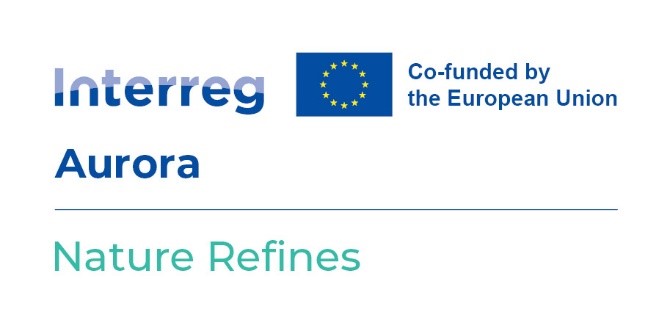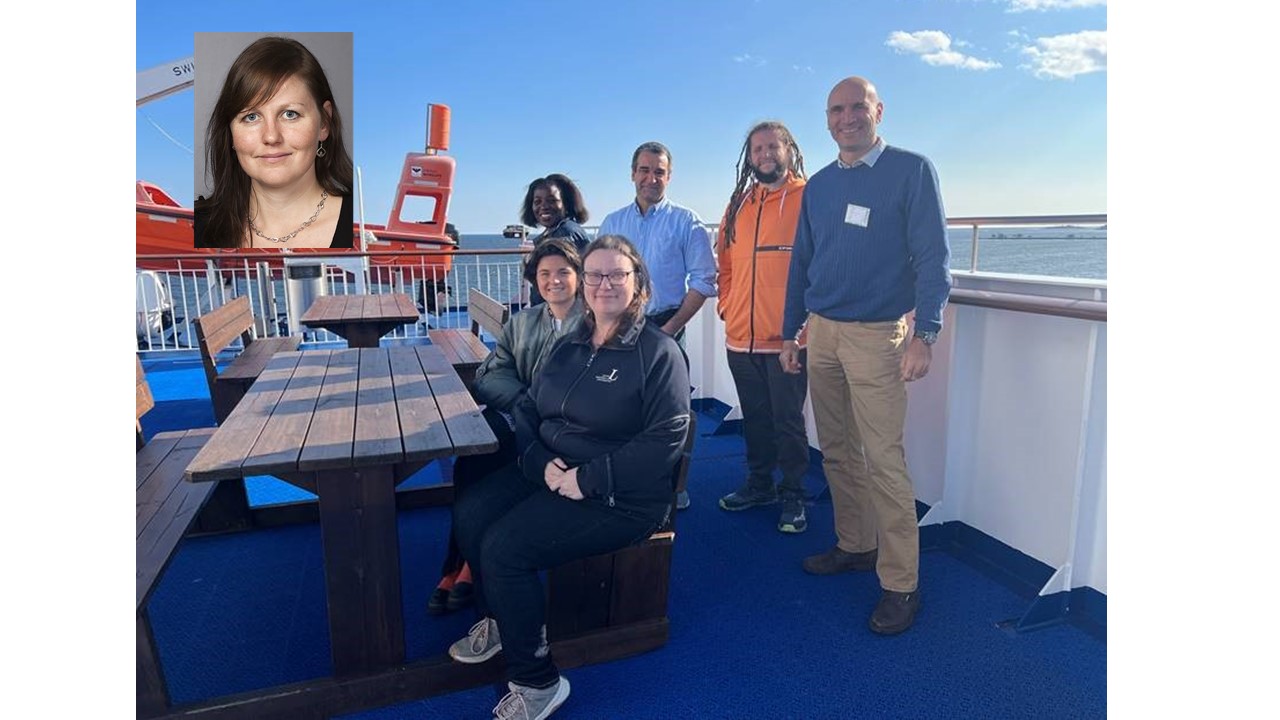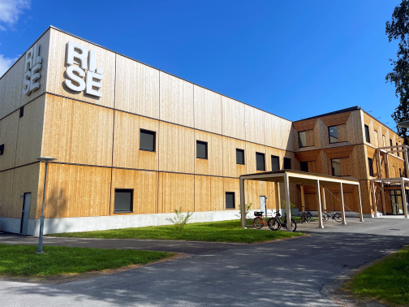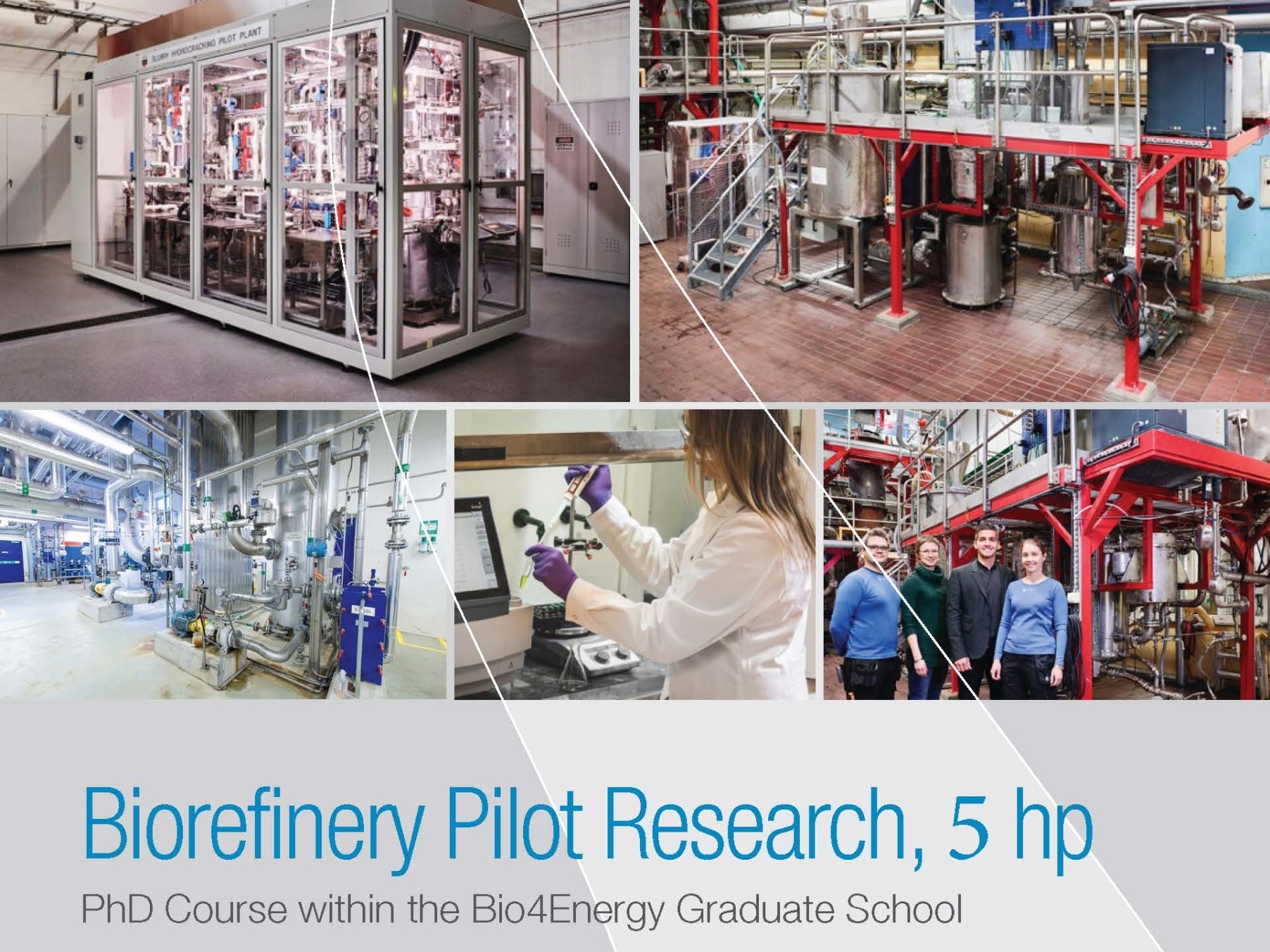Water Filtration, Electrodes Expected from EU Project on Smart Use of Biomass Residue
Bio4Energy researchers and partners are laying the groundwork for making water filters and electrodes for energy storage devices, from residual biomass materials that are in excess.
The main product used in this project is activated carbon and the technology used for the transformation of biomass into biochar is pyrolysis. Biochar is a brittle and porous carbon-rich product with coal-like qualities, which is being studied and used in water purification and soil remediation.
The main product used in this project is activated carbon and the technology used for the transformation of biomass into biochar is pyrolysis.
Pyrolysis is a thermochemical technology, in which a biomass starting material is exposed to very high temperatures inside a closed reactor void of oxygen or almost. The idea is to arrive at a dry and porous product through thermal and chemical alteration; but without burning the biomass to ashes.
Drawing on funding from the European Union, via its Interreg Aurora programme—allowing EU and associate nations to come together in regional constellations to tackle issues jointly in areas such as environment, health, research and education or energy—Alejandro Grimm and Francesco Gentili are heading up a multi-stakeholder project.
Wider aim of reusing residual biomass materials that are in excess
While the aim is to make product prototypes for bio-based water filtration devices and electrodes, the project has a wider scope of investigating and finding environmentally sound uses for residual streams of biomass from the forestry industry, agriculture, biogas making and aquaculture. The latter part targets aquatic biomass such as macroalgae from the Baltic sea and microalgae used in the treatment of municipal sewage water.
“The idea is to use residues from forestry, the pulp and paper industry or aquaculture to use pyrolysis to purify water and to produce supercapacitors to create various applications”, according Gentili, researcher at the Swedish University of Agricultural Sciences (SLU). A capacitor is an electronic component that stores electric charge. The term supercapacitor signifies a capacitor that has superior power density.
“The idea is to use residues from forestry, the pulp and paper industry or aquaculture to use pyrolysis to purify water and to produce supercapacitors to create various applications”.
In certain cases, the recycling and reuse of biomass materials are performed in multiple stages. In one work package, the researchers have teamed up with regional utilities and a business operator; first to make biochar from biomass residues and manure and then adding the biochar in the retting mixture underpinning biogas production, thereby adding a needed source of carbon.
Bio-based graphite is a target product
In others, the aim is to identify suitable biomass residues for making alternatives to petrochemically-based product applications. One such example would be graphite, which is high in demand not least because of its use in smartphone batteries. Graphite is a soft, dark grey form of carbon; also used in pencils, machines and nuclear reactors.
“We are designing bio-based graphite that resembles the fossil [kind] but the synthesis process is environmentally friendly and the final product functions in just the same way as fossil one”, said Grimm, SLU researcher who leads a Nature Refines project within the larger Interreg Aurora scheme.
While there are various timelines for the latter, the Nature Refines project runs until autumn 2026. By then, the pair expects to have a prototype of a water filtration device to show that can wean wastewater of heavy metals using microalgae from Gentili’s algae development site at regional energy utility Umeå Energi.
“We can offer a filter of higher quality than those imported from China”, Grimm said, referring to water filtration products currently available in do-it-yourself hardware stores in Sweden.
“The idea is to make sure that we use residues that are qualitative and fit for purpose”, Gentili added.
Activated carbon (AC), also known as activated charcoal, is a rough, imperfectly structured kind of graphite. It has a wide spectrum of pores of varying sizes, from obvious fractures and fissures to molecular dimensions. Because of its significant surface area, AC is frequently used for a variety of purposes, including removing impurities from air and water. Small, low-volume pores that are present in AC enhance the surface area that is accessible for chemical reactions such as adsorption (which is different from absorption). Quoted source: Royal Society of Chemistry.
Project page: Nature Refines – Interreg Aurora
Project coordinator: Alejandro Grimm, Bio4Energy Feedstock Pre-processing – Affiliation with the Swedish University of Agricultural Sciences
Project outreach: Francesco Gentili, Bio4Energy Environment and Nutrient Recycling – Affiliation with the Swedish University of Agricultural Sciences
Collaboration partners
Swedish University of Agricultural Sciences, BioFuel Region, NOVIA University of Applied Sciences, Luleå University of Technology
Domsjö Fabriker, Envigas, RagnSells, SCA, Stormossen, Vakin

Related Strategic Projects — Bio4Energy
- Doped biochar materials for bio-based batteries – in situ characterisation and understanding of structural versus electrochemical properties, BioBat
- Bio2Char — Pre-feasibility study of new residual streams as feedstock for production of biochar for industrial applications
- Design of biochar from residual streams — influence of fuel and process parameters on biochar properties for water and soil applications
- Electrochemical pyrolysis of spruce needles
- Activated and non-activated biochars and hydrochars from forestry-related waste streams for removal of environmental contaminants from sediments
- Investigating the electrochemical functionality of Norway spruce bark biochar and polymer composites
- Increasing the use of renewable energy carriers in Swedish mineral processing industries
Related news
Bio4Energy Partner LTU Part of ‘Largest Investment in Material Science in Sweden’ – Bio4Energy
Bio4Energy is Delivering Methods, Tools to Industry as Promised – Bio4Energy
Innovation Award for R&D on Biogas Separation Technology to Bio4Energy Researcher – Bio4Energy
Phase Out of Fossil Coal in Sweden’s Iron, Steel Industries on Cards – Bio4Energy


 RISE
RISE Bio4Energy
Bio4Energy



